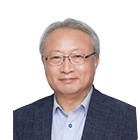Video
Publications
Issue Briefs
Publications | Issue Briefs
North Korea’s Hostile Policy Toward South Korea and Its Link to Foreign Policy Strategies
Han Ki-bum
3,5242025.01.10
In This Issue Brief analyzes Kim Jong Un’s recent assertion of “two Koreas” and his policy of expanding diplomatic ties. By classifying South Korea as a “hostile state,” North Korea aims to position itself as an “independent state” and isolate South Korea internationally. North Korea’s strategy involves strengthening alliances with China and Russia and engaging directly with the United States and Japan to create divisions among the United States, South Korea, and Japan. Additionally, North Korea seeks to justify its status as a “nuclear-armed state” to the Western bloc through propaganda.
Despite this diplomatic push, North Korea is unlikely to replace its provocations with diplomacy immediately. The “expansion of external areas” is seen as preparation for the aftermath of its brinkmanship, with more concrete policy adjustments expected around the 80th anniversary of the Party’s founding in October 2025 or the 9th Party Congress in January 2026. Realistic preparations for North Korea’s nuclear threats and guarding against its complex provocations are crucial. Additionally, managing trilateral cooperation among the U.S., South Korea, and Japan to counter North Korea’s divide-and-conquer tactics, securing cooperation from China, and preparing for the potential re-election of Trump, have become even more critical tasks.
This article is an English Summary of Asan Issue Brief (2024-10).
(‘북한의 대남 적대정책과 대외정책 연계’)

Han Ki-bum
Adjunct Senior Fellow
Dr. Han Ki-bum worked as a North Korea analyst at the National Intelligence Service over 20 years before retiring in February 2009 as the third deputy director (in charge of North Korea affairs). After retiring from the service, he worked as a visiting professor at Korea University and a visiting researcher at the Korea Institute for National Unification, And then served as the first deputy director of the NIS (in charge of North Korea and overseas affairs) again from April 2013 ~ February 2016. Since then, he has been working as a endowed Research Fellow at the Institute for National Unification, then as a endowed Research Fellow at the Institute for North Korean Studies, and as a Visiting Research Fellow at the Asan Institute for Policy Studies from January 2024.
view more


